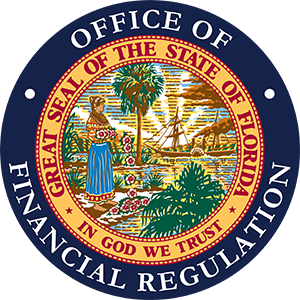Crowdfunding for Investors
This information is provided for general informational purposes only and should not be relied upon as legal interpretations by the Office, shall not supersede any part of the Florida Statutes or Florida Administrative Code, and does not constitute legal or financial advice. The Office does not endorse any third-party or guarantee the accuracy of any third-party information linked to or referenced herein.
Investment crowdfunding is a process of raising funds from a large number of individuals who each invest relatively small amounts of money. Crowdfunding campaigns often use an online intermediary platform and are typically conducted within a limited time frame.
Types of Crowdfunding
Donation crowdfunding is an online campaign to raise money for a personal project or a non-profit organization. Platforms like Kickstarter or GoFundMe allow individuals to donate money to a project or cause.
Investment or equity crowdfunding is an online securities offering campaign usually conducted via an intermediary portal. The issuing business sells equity in the company, debt, or convertible stocks to investors who expect to receive a return if the company succeeds. Common stock is the primary security offered in an equity crowdfunding campaign. The intermediary platform must be a U.S. Securities and Exchange Commission/Financial Industry Regulatory Authority (FINRA) registered broker-dealer or a state-licensed funding portal. All investment solicitations, offering information, and investor communications must be conducted through the online portal.
Federal registered funding portals can be found via FINRA's website. State-licensed intermediaries can be found through the OFR’s REAL online registration system.
Equity crowdfunding campaigns typically raise $25,000-$250,000 and may be helpful for companies looking to achieve short-term funding goals. They may also be helpful when companies don’t have access to accredited investors or if they have a strong online presence or supporter following. Equity crowdfunding may be an option for companies that do not have access to traditional business loans.
Under SEC Regulation Crowdfunding both accredited and non-accredited investors can invest in an equity crowdfunding offering, but because investments are high-risk, non-accredited investors are limited in the amount that they can contribute in a 12-month period: investors can invest in an equity crowdfunding offering, but because investments are high-risk, non-accredited investors are limited in the amount that they can contribute in a 12-month period:
- If an investor’s annual income or net worth is less than $124,000, the limit is the greater of $2,500 or 5 percent of the investor’s annual income or net worth.
- If both an investor’s annual income and net worth are equal to or more than $124,000, the limit is 10 percent of the greater of the investor’s annual income or net worth. Investments may not exceed $124,000.
Investors may cancel their investment for any reason until 48 hours prior to the deadline identified in the issuer’s offering materials. Funds are held in escrow and released to the issuer when the target offering amount is reached. If the target offering amount is not reached within the allotted time frame, the money is returned to investors.
Investors receive restricted securities which limit resale for one year in most circumstances.
Things to Keep in Mind
As with other private investments, investing in equity crowdfunding campaigns is high risk. Investors may receive limited reporting and information from the issuing company, and startup businesses may have little or no financial, operational, or historical data to analyze. Investors should take the time to understand how the business intends to use the money from the offering and if any money raised will go toward compensating the company’s employees and directors. Review all written information and ask questions on anything you don’t understand. Be sure to take the time you need to make a fully informed decision about the investment product and whether it aligns with your financial goals.
Investing in a private company is a long-term investment. Private securities sold in an equity crowdfunding offering are generally illiquid and can’t be easily sold on an exchange like public securities. Shares sold in an equity crowdfunding offering can’t be resold except in limited circumstances within 12 months of the initial purchase. After the 12-month restriction period, investors can find another interested buyer if they wish to liquidate their investment; however, depending on the terms of the offering, they may need permission from the issuing entity prior to reselling their investment.
